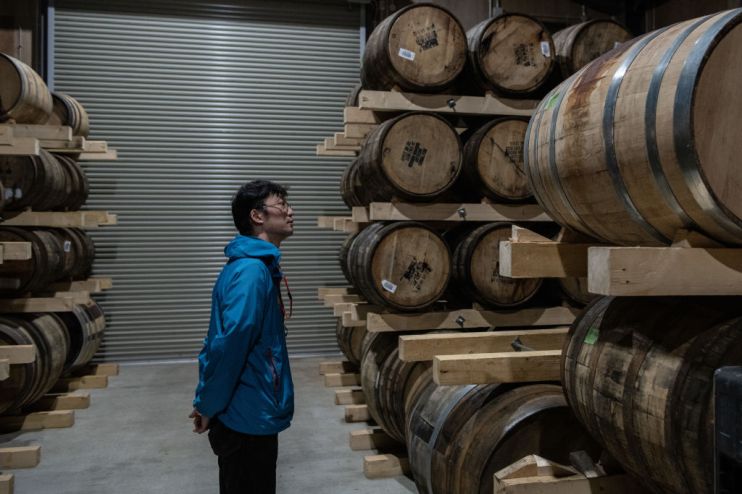City Spirits: Japanese whiskymakers bid sayonara to imposters

With a light now flickering at the end of our locked-down tunnel, thoughts have turned to travel – hardly surprising after being trapped in front of Netflix for what feels like centuries. Where to next?
One movie in particular has begun to whet our appetite: the darkly comic Lost in Translation. From the sofa you can almost smell the mahogany bars of Tokyo – those lucky enough to have been can remember the cigarette smoke and faded neon signs around the hidden doorways of Shinjuku or Shimokita.
The country is home to some of the best nightspots in the world, a combination of precisely stylish Japanese decor, a burning pride in ingredients and quality and, of course, its own whisky – the very same whisky Bill Murray spends most of that movie advertising.
Read more: City Spirits: The margarita is a perfect February pick-me-up
Japanese whisky has caught the eye of many over recent years, with awards heading to the Land of the Rising Sun and throwing a shade over Scotch whisky.
Yet no matter how fashionable whisky from Japan has become, Scotch has always been the taller spirit, standing head-and-shoulders above Japanese whisky thanks to the tight regulations which governs the liquid gold from Alba.
And herein lies the twist.
A large portion of whisky that appears with a Japanese label on it, is actually Scotch, or Canadian, imported to Japan, blended and bottled, and sent to unsuspecting consumers elsewhere.
Don’t take our word for it: according to the Scotch Whisky Association and HMRC, bulk exports of whisky from Scotland to Japan increased four-fold between 2013 and 2018
This was always something of well-known secret in the drinks writers’ fraternity, but so was the fact that some Japanese whisky was indeed made, and matured in Japan. And very good whisky it is too.
Read more: City Spirits: Our new drinks column takes on the Super Bowl
Yet when, last week, it was announced that a key group of Japanese whisky producers decided to sign up to the first ever set of Japanese whisky regulations, calling out some of their flagship products as ‘not-Japanese whisky’ in the process, it left a large section of the world’s whisky drinkers to catch up; dazed and confused, left agog like Gareth from The Office… “What? David Brent is leaving?”
To cut to the chase with these new regulations (which are not law; more of a gentlemen’s agreement), it basically says that the full process of making Japanese whisky, from barley to barrel, must be carried out in Japan.
This has left some of the best loved ‘Japanese whiskies’ behind. The famed, and much loved Nikka From The Barrel now marked as ‘not a Japanese whisky’. Fair play to this whisky’s owner, Nikka, for calling this out and it does not make it any less of a great whisky, nor any less stunning in its iconic square bottle. But a Japanese whisky it ain’t.
However, Nikka does produce authentic Japanese whiskies, including their single malts of Yoichi, Miyagikyo and Taketsuru, all falling in line with the new regulations.
The oldest and largest producer of whisky in Japan, Suntory, has also announced that their whiskies will carry the appropriate categorisation, with little change at their end: the Yamazaki and Hakushu single malts, and their Toki blended whiskies and Chita single grain whisky, all highly praised and highly sought after, meeting the new regulations.
In fact, if you want to try just one shout-it-loudly-from-the-rooftops-authentic Japanese whisky, try Suntory’s Hibiki Harmony blend. Utterly delicious with a fantastic balance of rich oak notes, sweet fruits, vanilla, and spices showcase exactly why real Japanese whisky has been lauded over the last decade or so.
Sadly, these regulations are not enshrined in law, meaning that there will still be imposter Japanese whisky on our shop shelves, in our bars and invading our glasses.
Overall, however the lesson is that, no matter how good a whisky might taste, if it is not backed up by decent regulations (or honest producers who subscribe to agreements), the authenticity of the whisky in your glass may well be lost in translation.